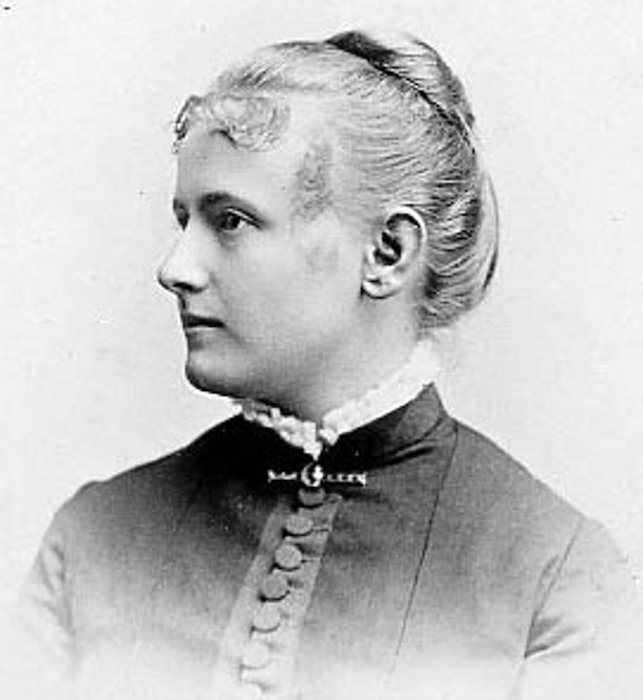Readings for the feast of Vida Dutton Scudder, Friday, October 9, 2020 (Lesser Feasts and Fasts, tomorrow if you’re using the A Great Cloud of Witnesses listing):
In our Gospel reading today, Jesus talks about doing the will of the Father that sent him, rather than his own will. Vida Dutton Scudder was a person who sought to understand that will during the entire 92 years of her life, even if that life led her into unpopular or unorthodox places, or change direction on how she was best called to follow Jesus.
She was born in 1861 into a family of Congregationalist missionaries. (Four generations of the Scudder family would serve as missionaries.) Her father accidentally drowned less than a year after she was born, and her mother returned with her to Boston, where she received an elite education for women of that time. She was one of the first women admitted to Oxford’s graduate program. The first change of direction in her life was to become an Episcopalian. She and her mother were confirmed by Phillips Brooks sometime in the 1870’s. Vida was one of the early names in the Settlement House movement, and it was through that, where she met the woman who was to become her lifelong partner, Florence Converse, who lived with her from 1919 until her death. Paradoxically, she also became fascinated with monasticism, and especially with Catherine of Siena, which led her in 1889 to become associated with the Society of the Companions of the Holy Cross, also until her death.
Her next change of direction would be to become an active, card-carrying socialist as an outgrowth of becoming interested in the labor movement as it related to the people she met in the neighborhood where her settlement house was located. Yet unlike most socialists, who trended towards atheism and agnosticism, she saw socialism as compatible with the Gospels, aligning herself with the Social Gospel/Christian Socialist movement of the 1890’s. It’s telling that this card-carrying socialist kept her Socialist Party card next to the crucifix in her private oratory. Just as her commitment to Marxism might raise a few eyebrows today, it was just as eyebrow-raising then, causing a huge rift between her and her mother that spiraled Vida into an emotional breakdown in 1901. She spent the next two years in Europe traveling, resting, and writing. She would spend some of the subsequent decade following and voraciously reading about the Russian Revolution, but her enthusiasm for socialism waned as the “Russian Experiment”, as she liked to call it, led to oppression and brutality.
Interestingly, she supported America’s decision to enter the First World War, and for a brief period, embraced capitalism but stopped short at the places where capitalism oppressed the working class. By the 1920’s, she had become a pacifist, joining the Fellowship of Reconciliation. She devoted the remaining years of her life teaching, writing, and lecturing as a noted student of Franciscan spirituality. Yet through all these seemingly political changes, she remained an orthodox Anglican Christian, pointing out time and time again that her journey through several unorthodox political realms was more than mere politics but rooted in an intense desire to follow Jesus and discern what God’s will was for her life. When her journey came to an end in 1952, she was buried in the Newton, Massachusetts, cemetery, where Florence Converse would be buried beside her thirteen years later.
Vida Dutton Scudder’s long journey in life took twists and turns in many different directions, some of them very unusual in terms of how it might look contrasted with more conventional Christian experiences among her contemporaries. Yet she maintained a lifelong devotion to following Christ, and was not distracted by naysayers. She was apolitical in intent, but her devotion led her into political realms that might even feel uncomfortable to us today in spots. She also never gave up on the powers of her own imagination to see God’s call to be a piece of God’s reconciliation of all people to God and one another. In her own words, “It is through creating, not possessing, that life is revealed.”
Can you recall a time that your understanding of the Christian walk led you into unorthodox or unusual places?
Maria Evans splits her week between being a pathologist and laboratory director in Kirksville, MO, and gratefully serving in the Episcopal Diocese of Missouri , as the Interim Pastor at Christ Episcopal Church, Rolla, MO.

